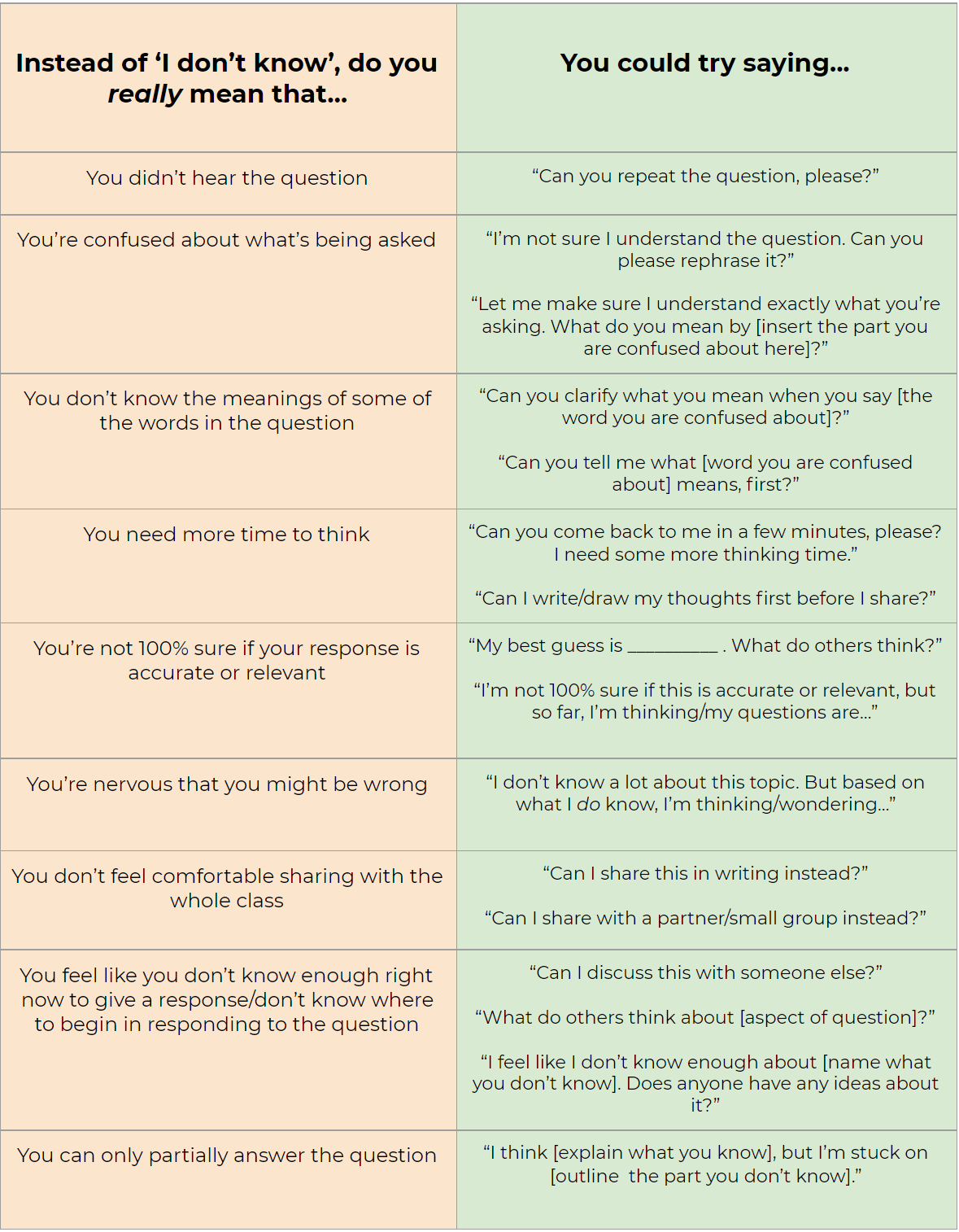From conversation killer to conversation starter: Turning ‘I don’t know’ on its head by asking students to pinpoint what they really mean
Nothing shuts down a conversation like an “I don’t know” followed by a full stop.
In these cases, ‘I don’t know’ becomes a shorthand way of shifting the ‘spotlight’ of attention elsewhere, which can have the unintended consequence of shutting down a line of questioning and blocking opportunities to build students’ thinking. If the conversation stalls here, an unwanted side effect is that ‘I don’t know’ effectively becomes a ‘conversation killer’, and can stifle student ownership of their learning and the flourishing of the learning environment itself.
If we really want to establish a vibrant learning culture in our classrooms, encouraging students to get comfortable with not having all of the answers and then moving beyond ‘I don’t know’ is a necessary first step. We need to show them that learning only happens when we uncover something we don’t know, and then actively pursue understanding of it. In other words, learning happens when we turn “I don’t know” into a learning opportunity; when we own the ‘I don’t know’ and clarify what we really mean so we can go further in our quest for understanding.
One way to help our students do this is to guide them to use a more precise vocabulary to help them pinpoint what’s going on when they say ‘I don’t know’. In this way, we can use phrases that are more helpful to the learning process and make the shift from ‘shutting down’ to ‘opening up’ lines of inquiry.
Here are a few (non-exhaustive) examples to get started with below. What might you add?
